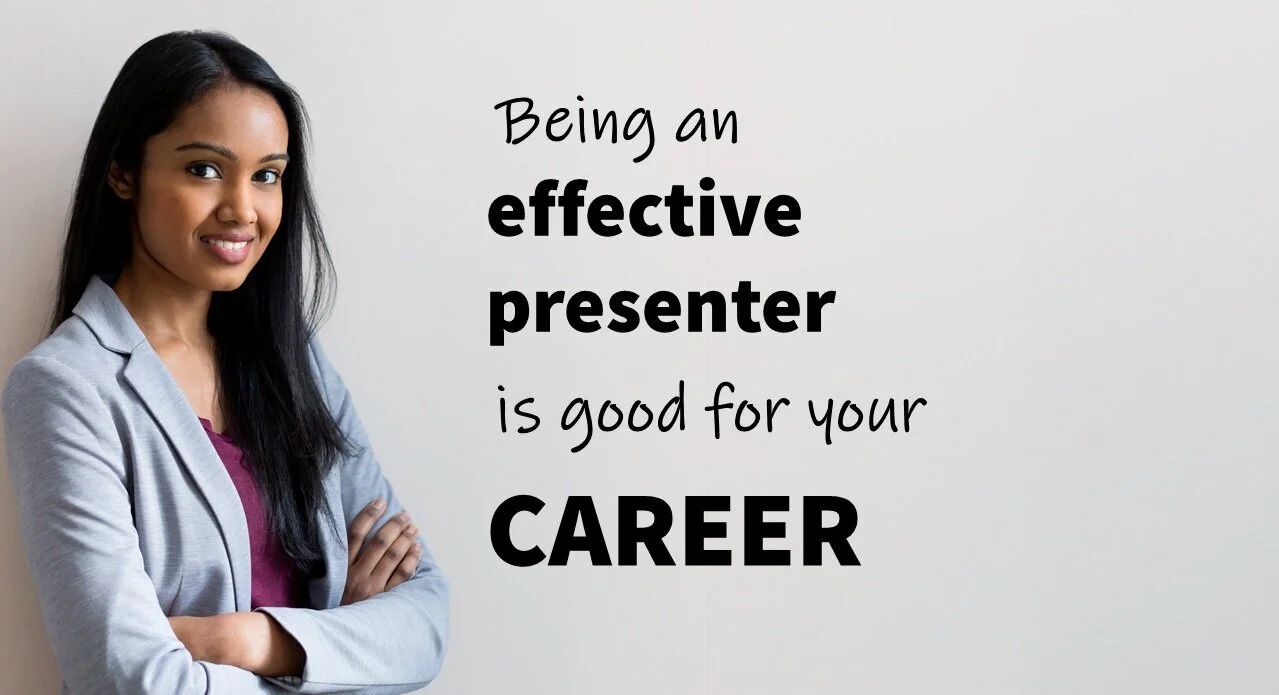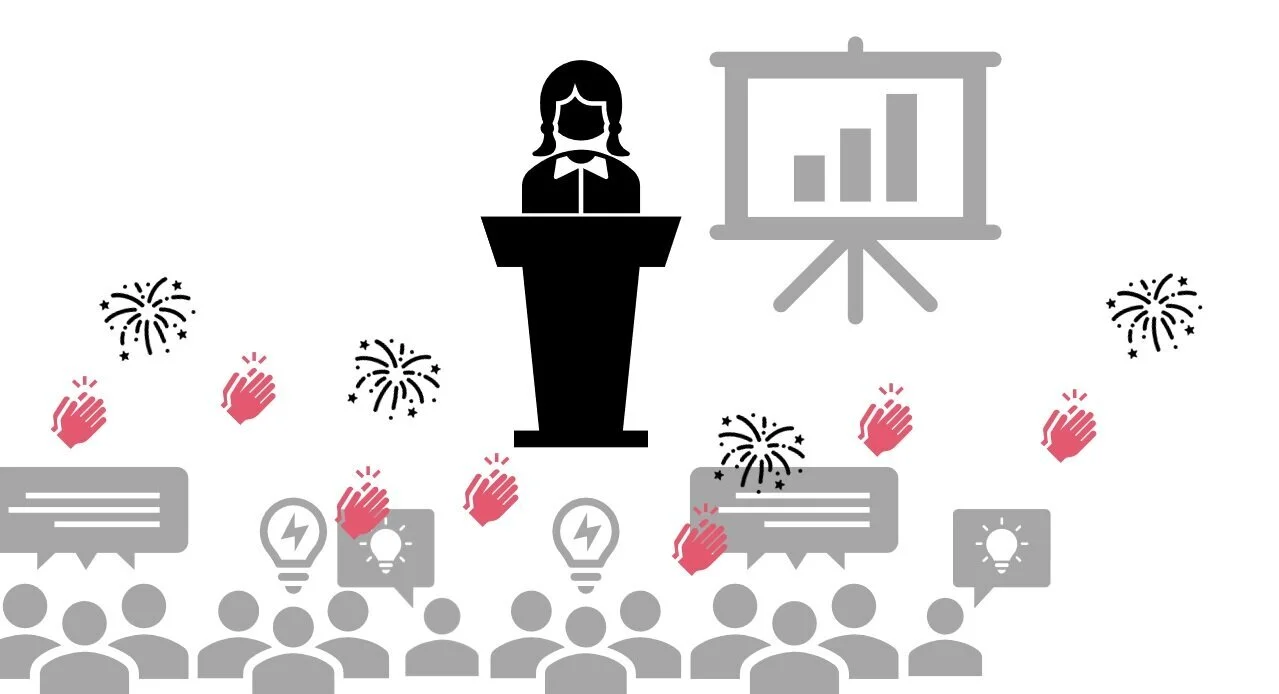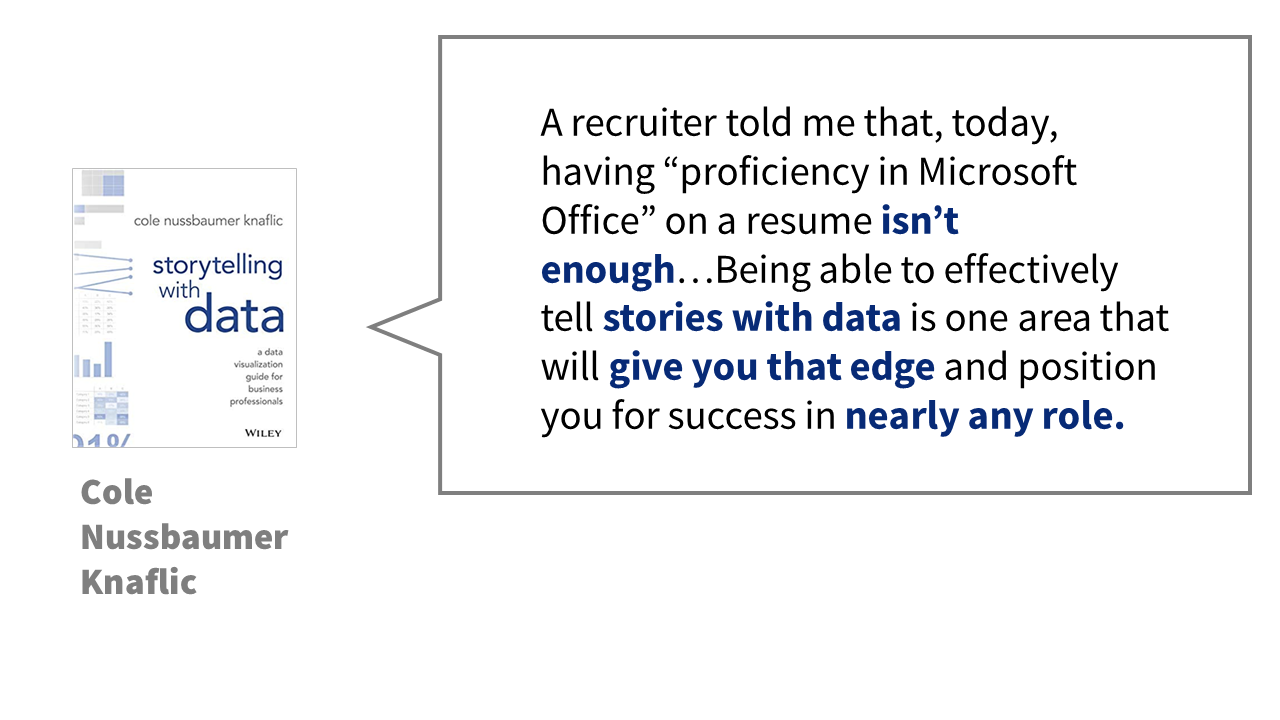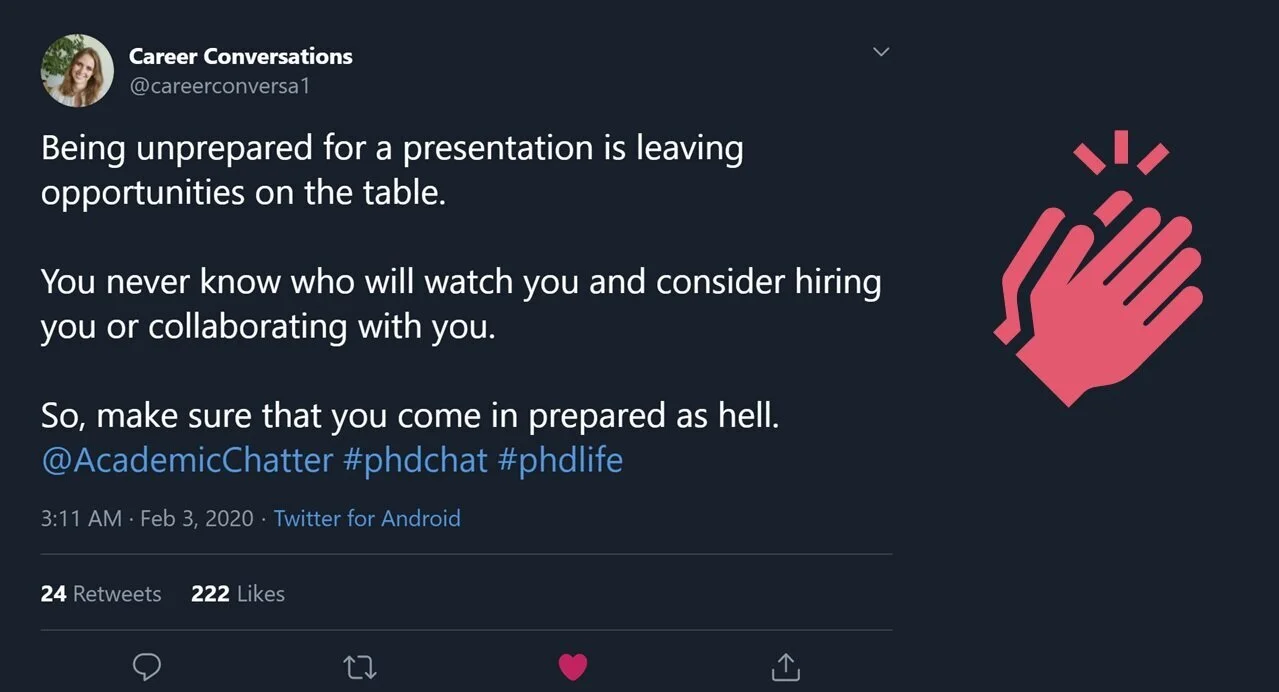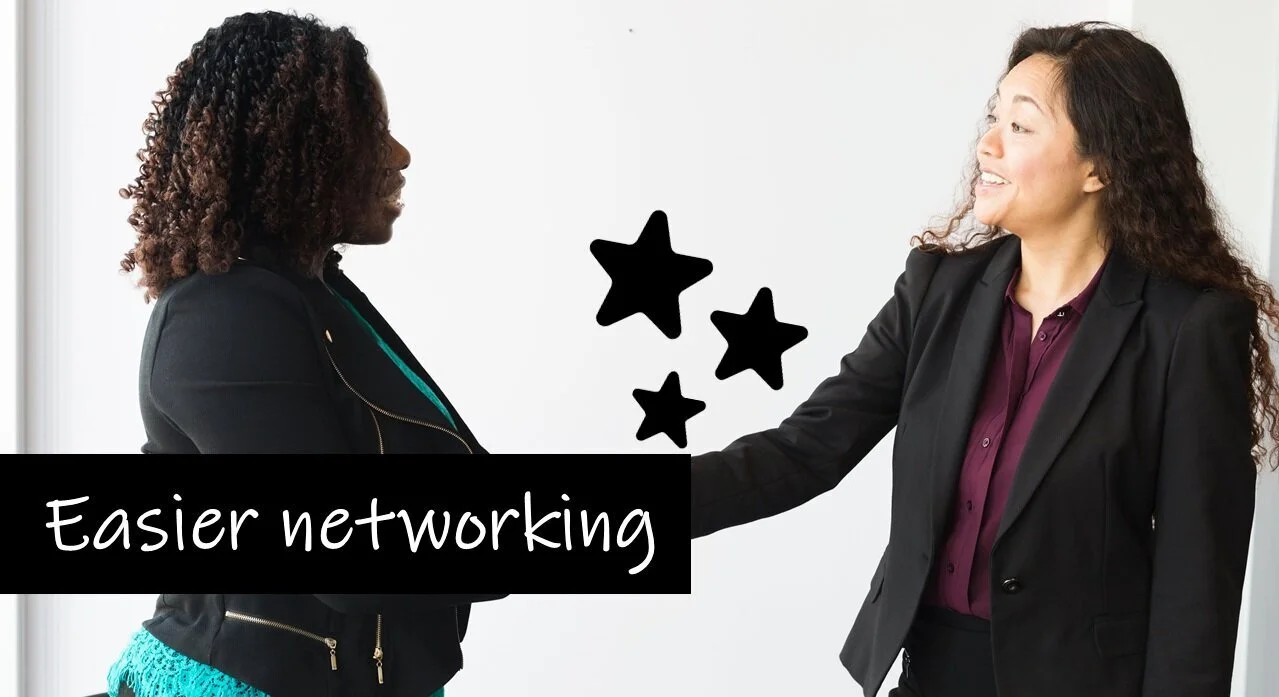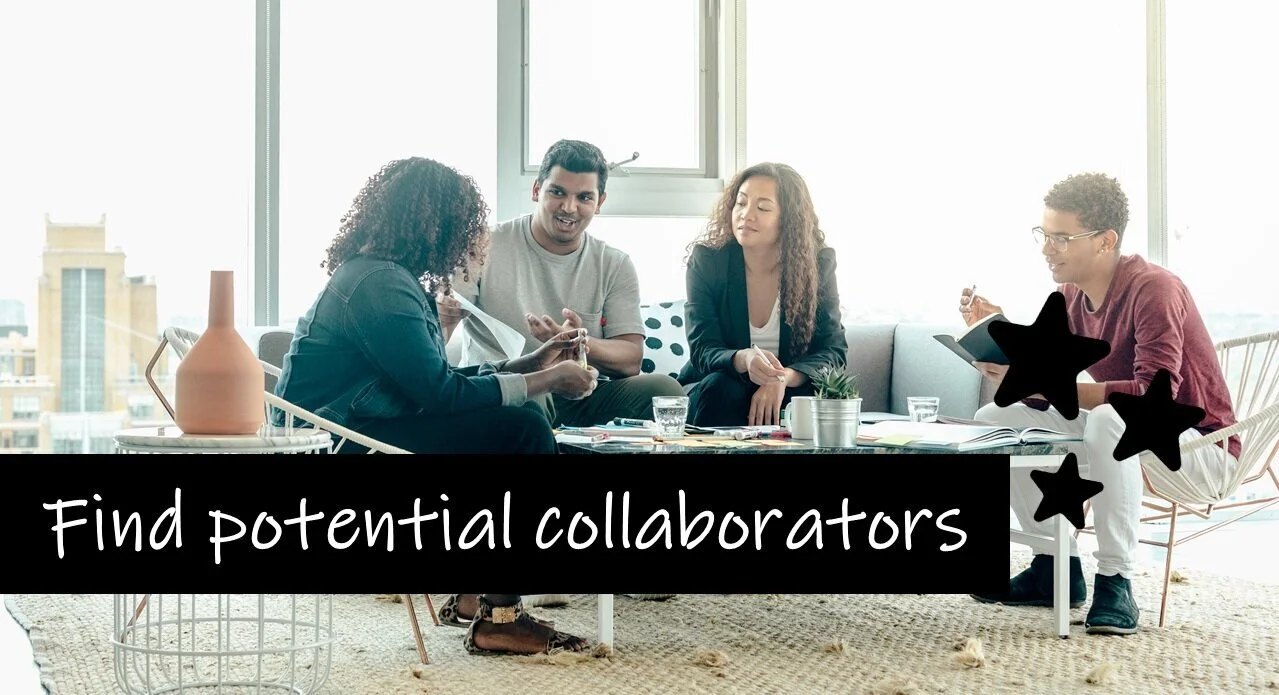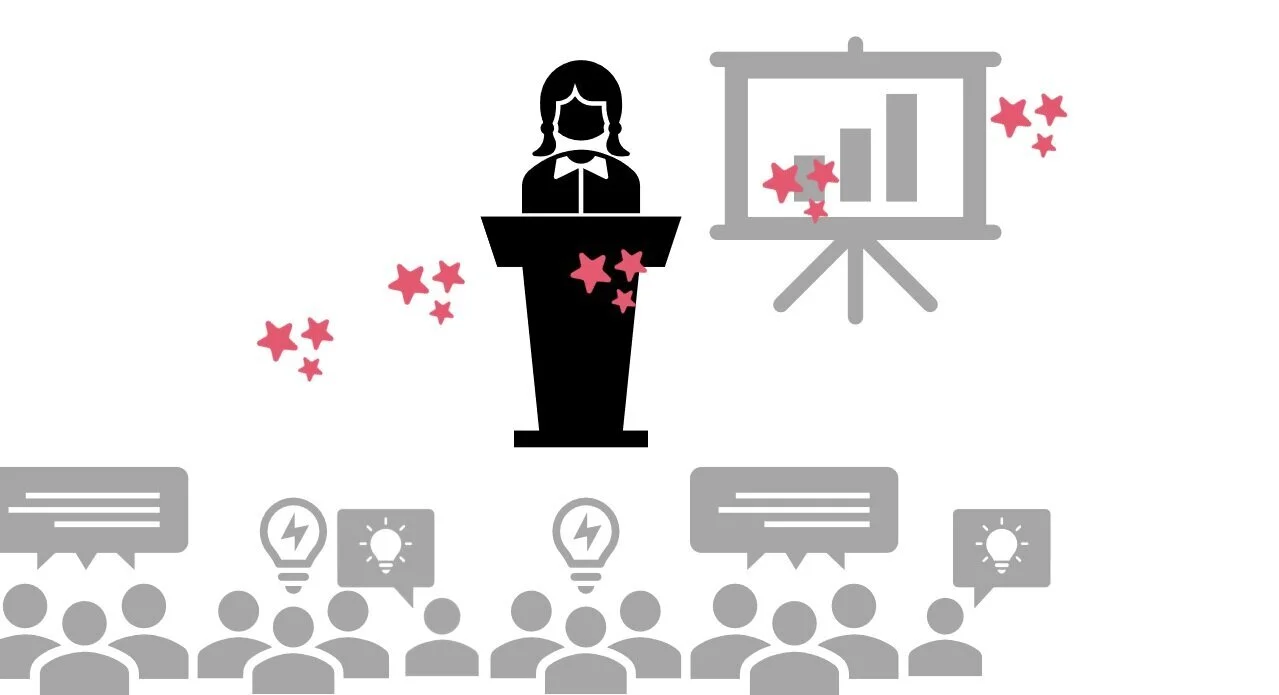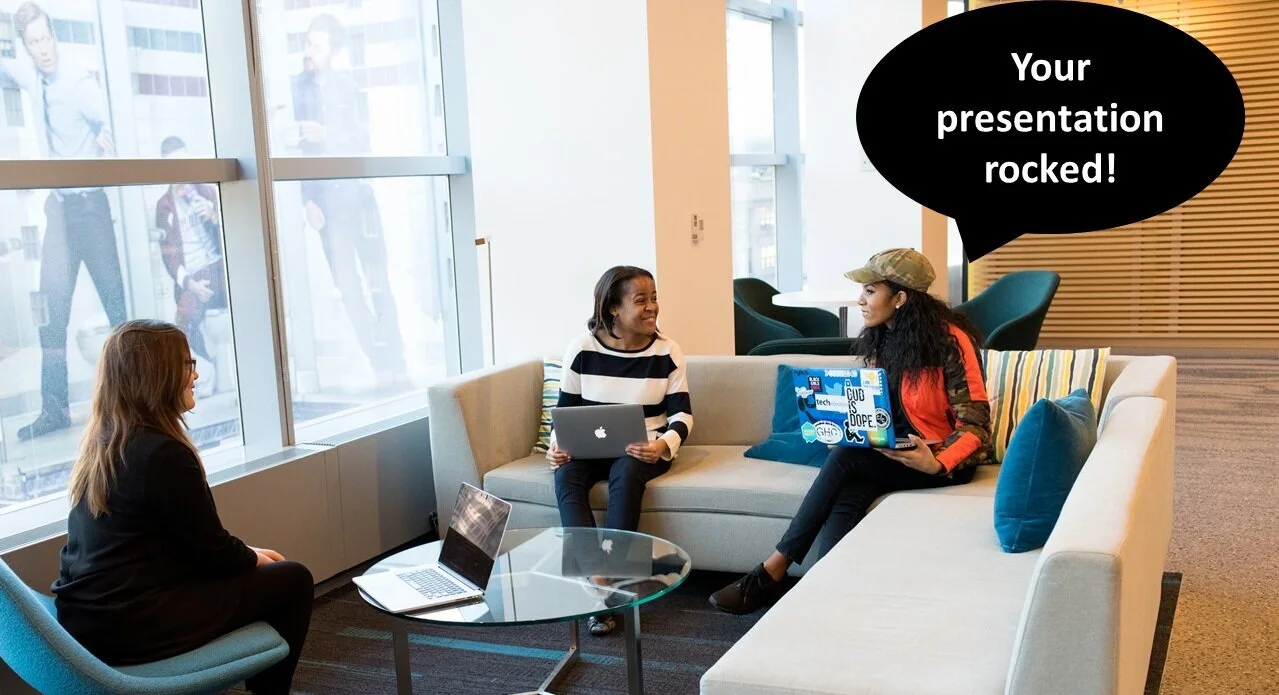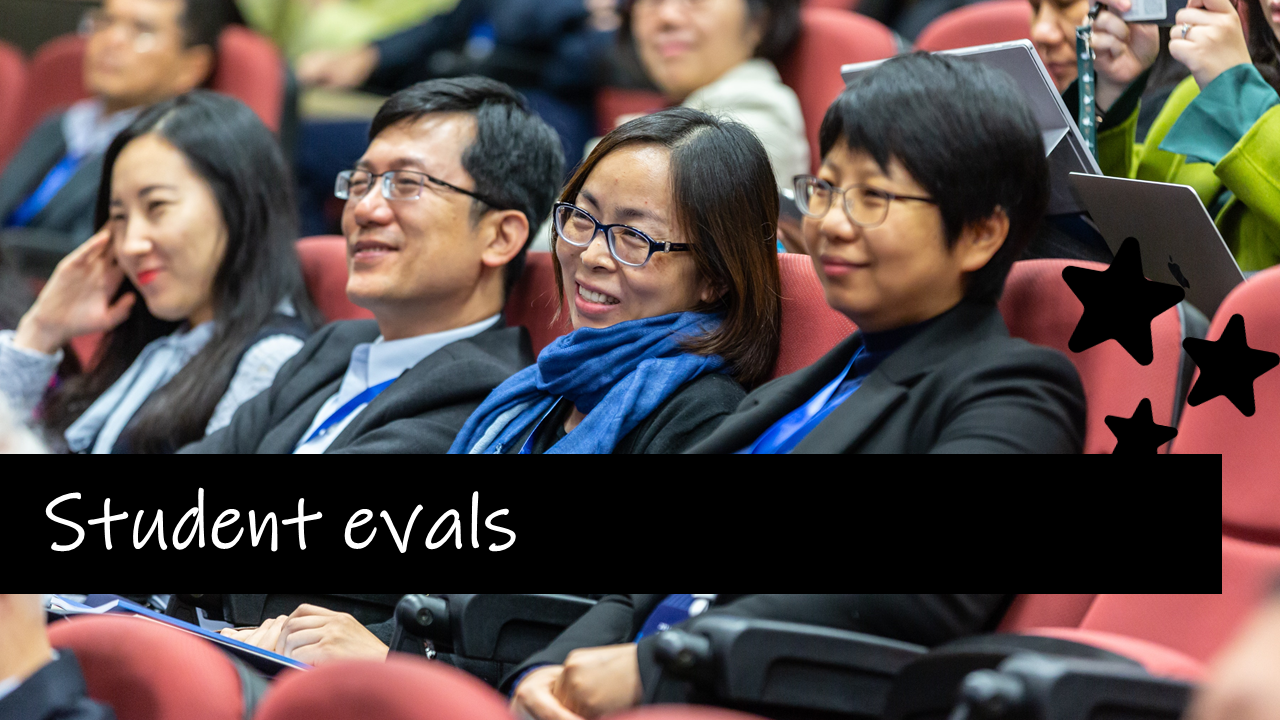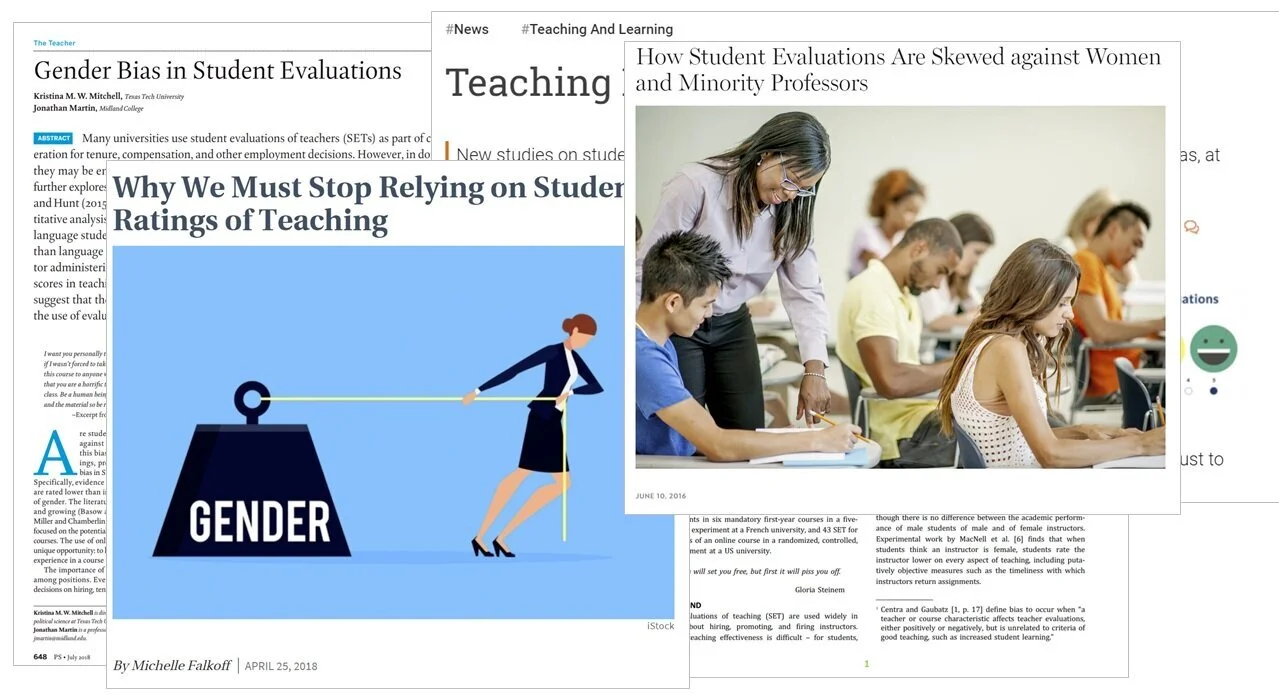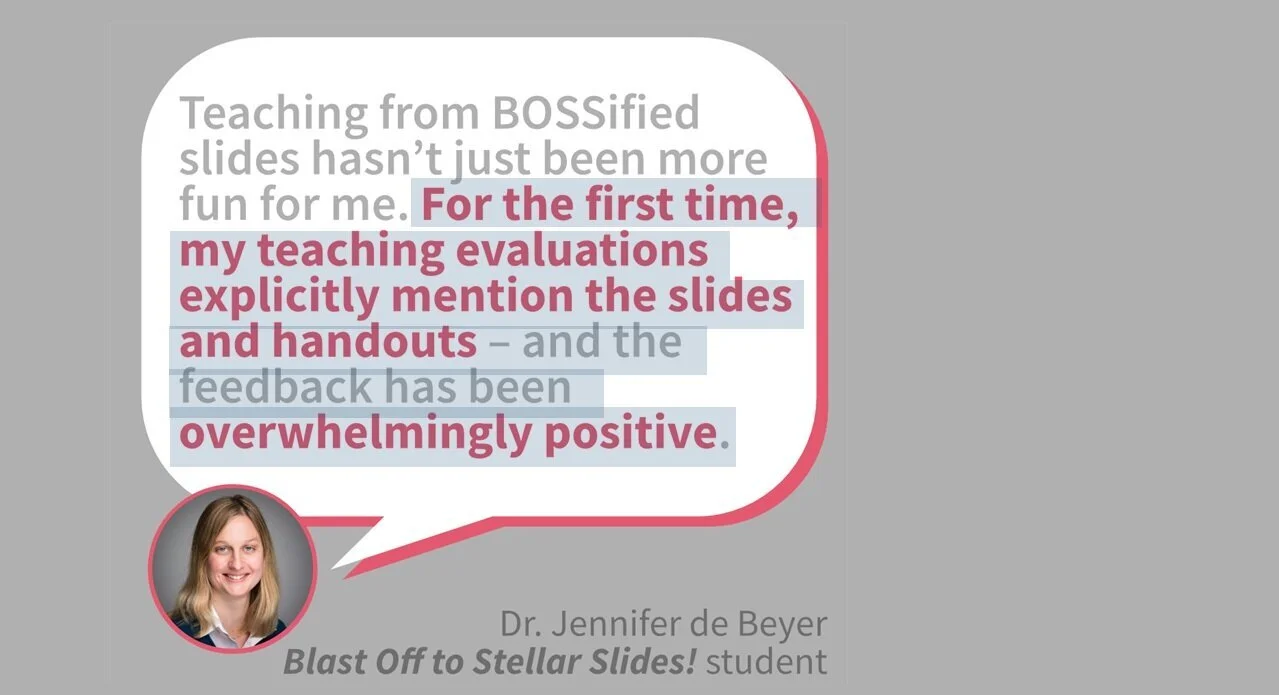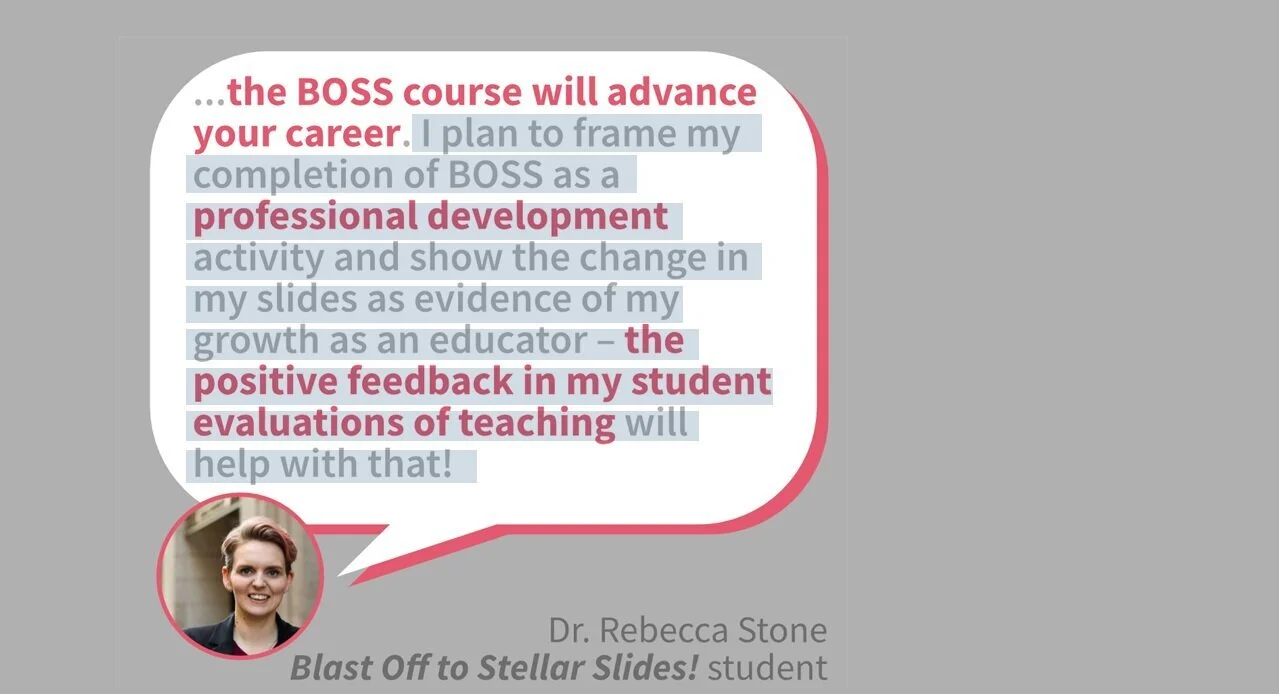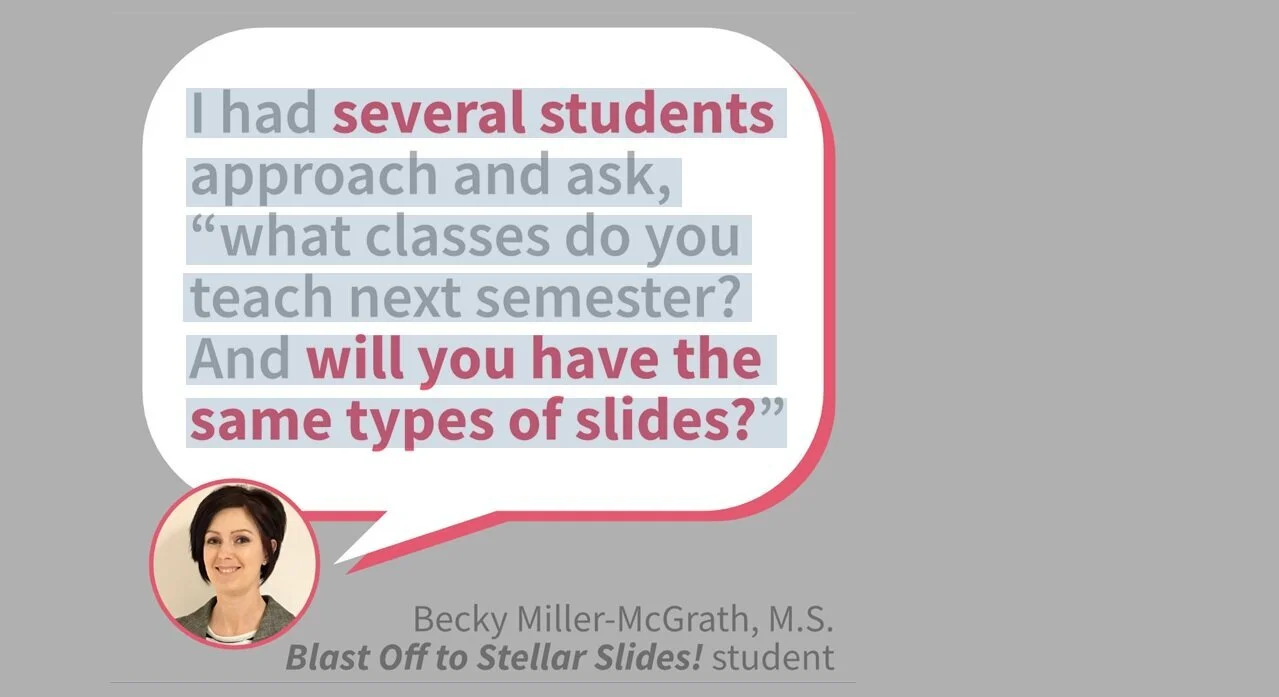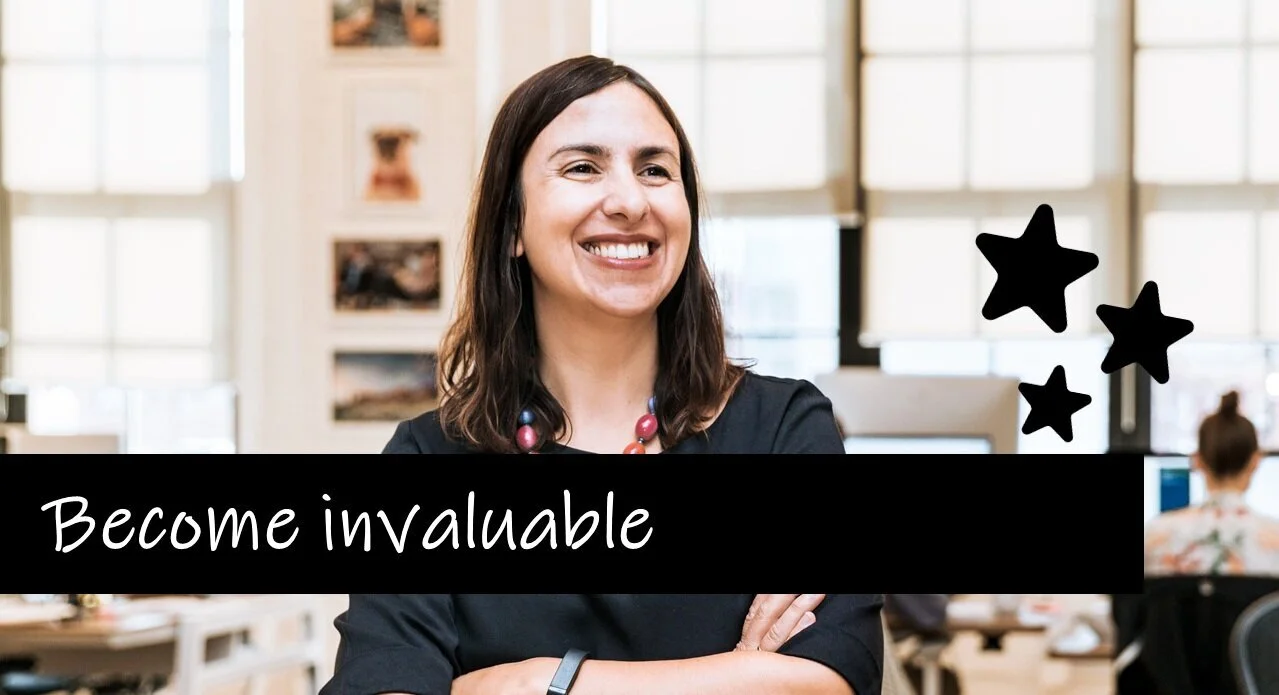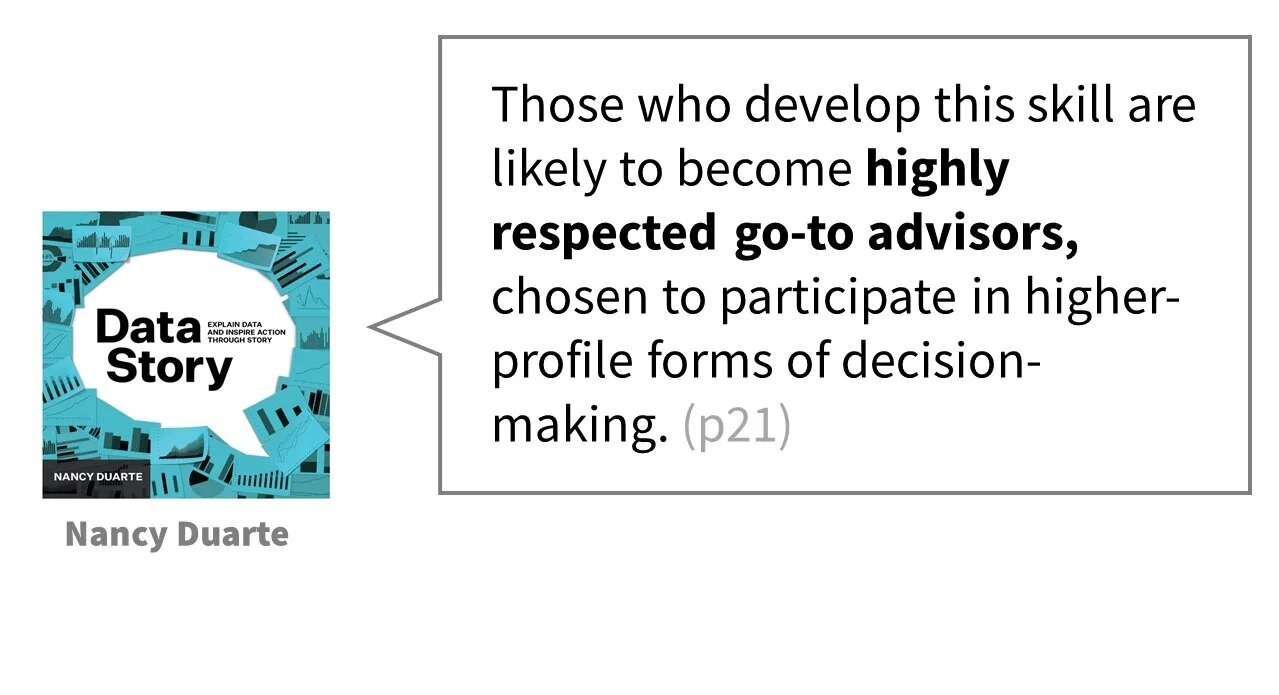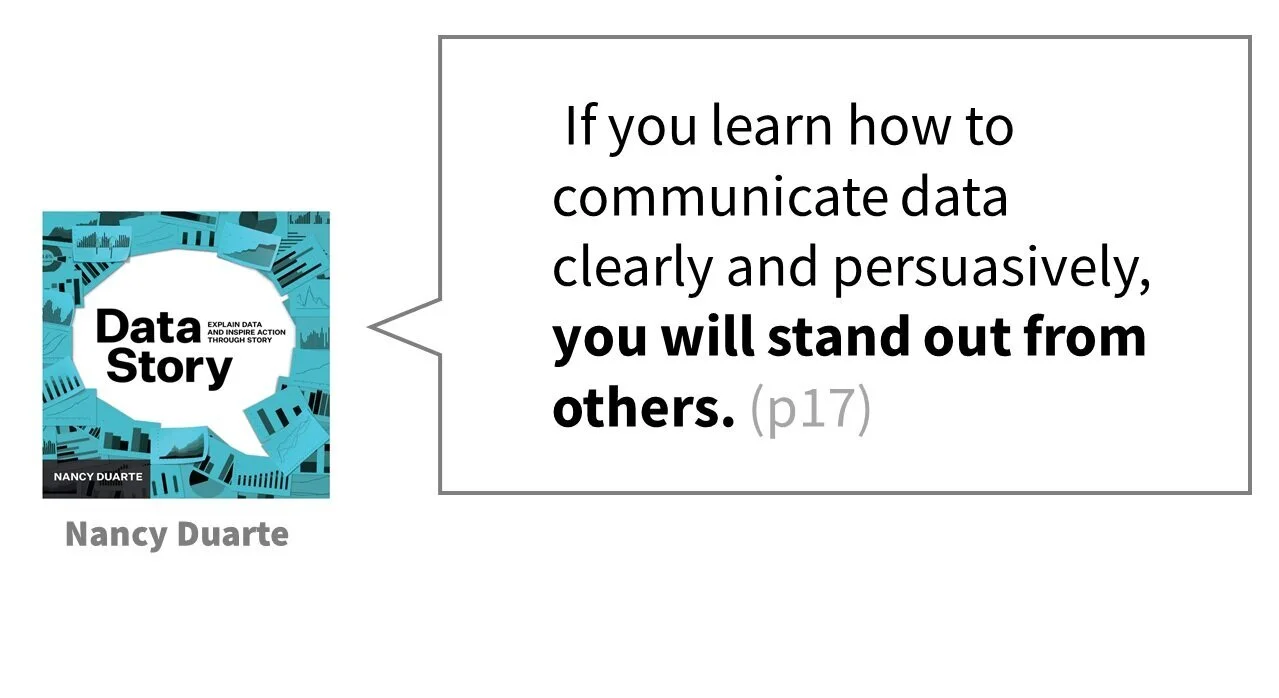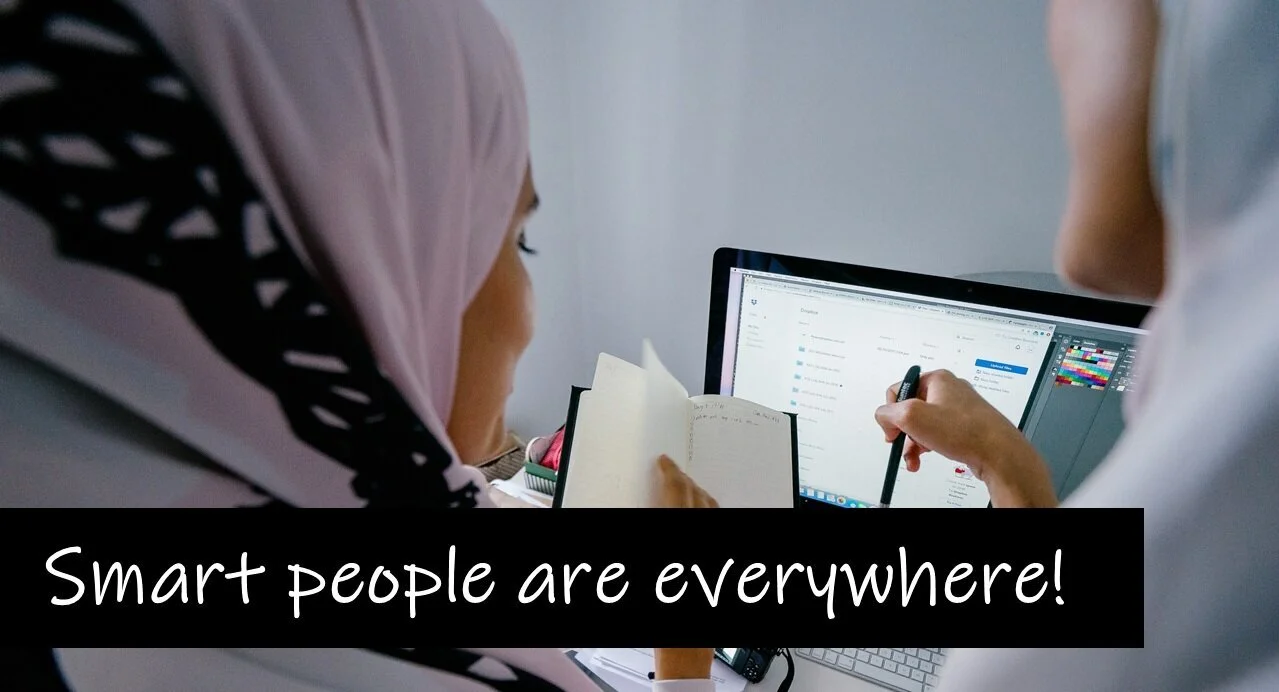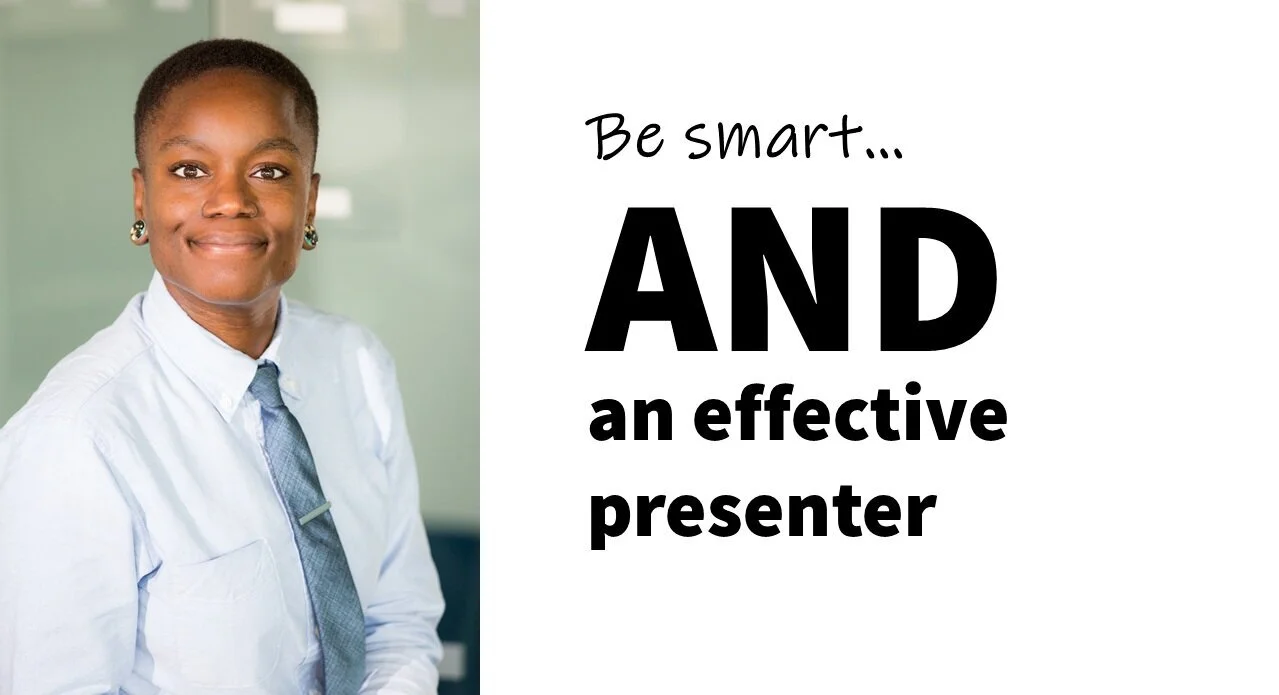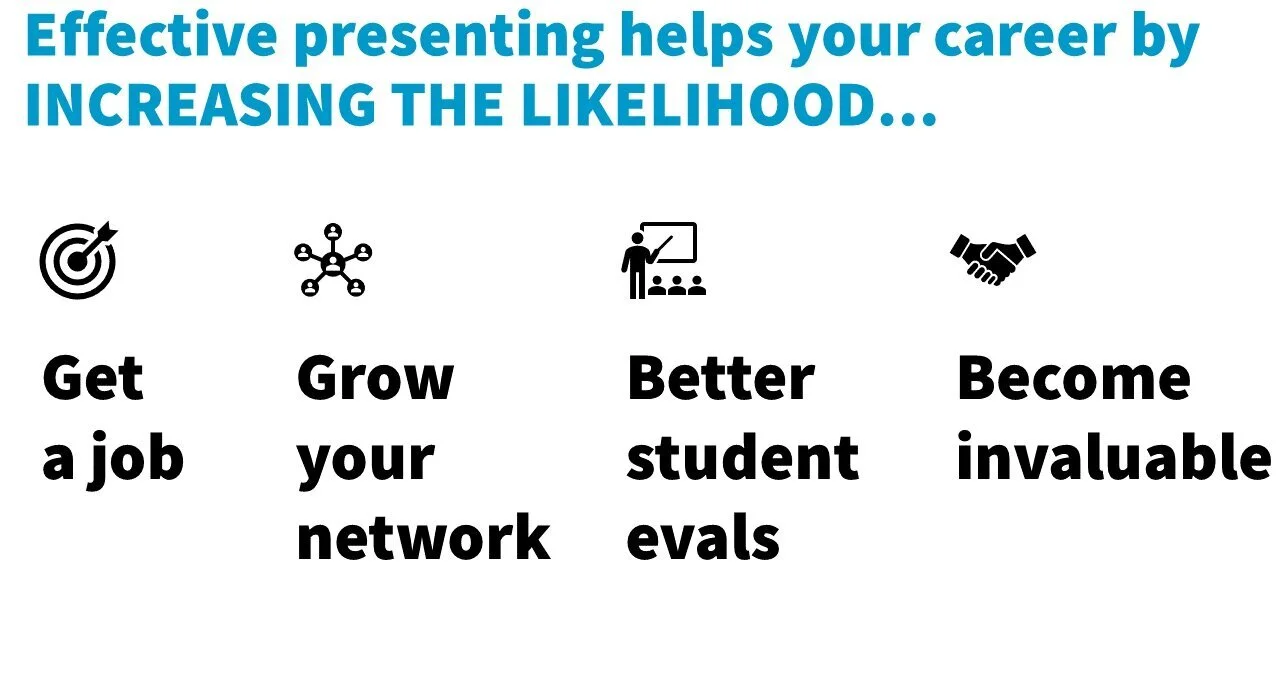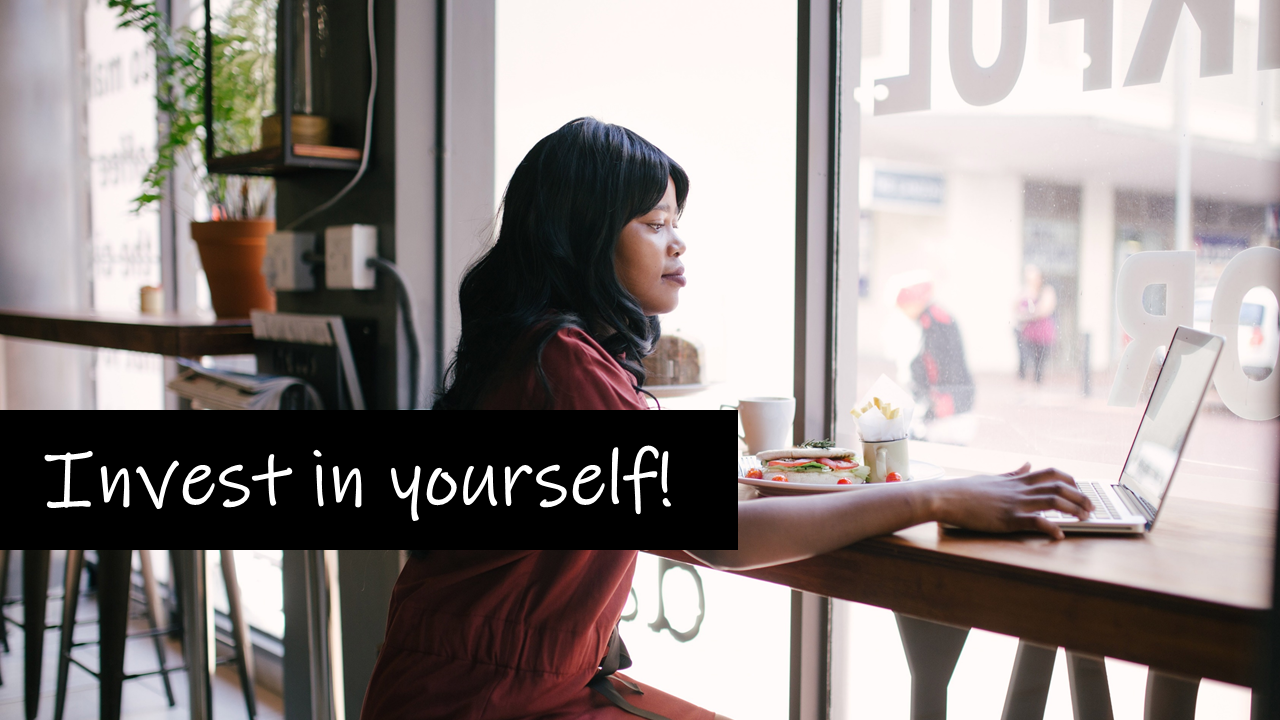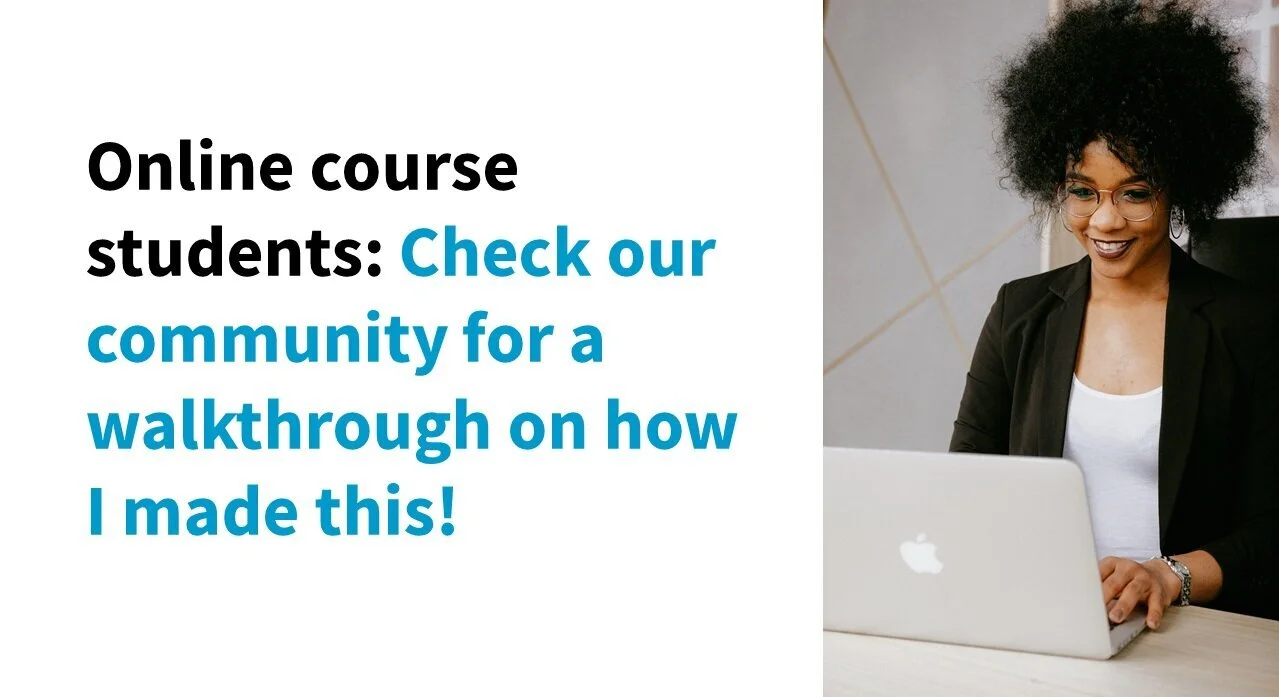4 Ways Being an Effective Presenter is Good For Your Career
This is the blog post version of my YouTube video.
You: An academic, scientist, researcher, evaluator (or similar professional).
How much extra time you have in your day: lol
Look. I get it. You're busy and have a million things to do, so why should you squeeze in spending more time on your presentations? Well, one reason is because being an effective presenter is good for your career. Whether you're in academia, research, evaluation or you've taken a non-academic or alt-ac path, becoming an effective presenter is a smart career choice.
Before we get started you should know I have a free training!
1. Effective presentation skills can help you GET THE JOB!
The most obvious way it's good for your career is it can help you actually get a job. Think about it. When you're there delivering your job talk, chalk talk, or a teaching demo, you need to communicate clearly and you need to demonstrate that you know how to share your work in effective and engaging ways.
In other words, you need to make a good impression and you need your job talk to be engaging and effective if you want to increase your chances of getting that job offer. If you come to your job talk or teaching demo with standard slides, walls of text, bad images, bullet points, data tables, or slide templates, they're not going to be impressed and that is not going to help you get the job.
I have a 40 minute training video on my YouTube channel about job talks and teaching demos. So if you're interested, check out that video when you're done with this post.
But it's not just job talks. Being an effective presenter helps you even if you're not in academia.
For example, Cole Nussbaumer Knaflic (who is one of my favorites, by the way. I love the way she teaches data visualization) is coming from the business world, the tech world, and in her book she said,
“a recruiter told me that today, having proficiency in Microsoft Office on a resume isn't enough. Being able to tell stories with the data is one area that will give you an edge and position you for success in nearly every role.” (Storytelling with Data, page 3)
Again, whether you're in academia or science communication, or you're working for a government agency, nonprofit, or industry—being able to communicate effectively is a skill that will help you land a job because recruiters want to see this skill in new hires. So it can help you get a job.
2. Effective presentation skills can boost your opportunities and networking
The next few reasons are all about opportunities for your career.
Career Conversations said this really well. I love this tweet. They said, “being unprepared for a presentation is leaving opportunities on the table. You will never know who will watch you and consider hiring you or collaborating with you. So make sure you come in prepared as hell.”
I agree 100%, not only because it mentions being prepared, which is really important (I have a whole video about practicing), but it's also perfect for this topic because it captures that hard to define reason that effective presenting is so good for your career. It's this idea of potential opportunities for your career.
In other words, when you're an effective and engaging presenter, networking is easier.
And networks are so valuable for a lot of reasons, and just one of them is finding potential collaborators, people you might actually enjoy working with who maybe aren't at your organization or university.
Why is being an effective presenter good for networking? How does it make it easier? Let's think about this.
Let's say you're at a conference presentation. If you present in the SAD way (Standard Academic Delivery), it's just a death by PowerPoint, wall of text, bullet points, bad visuals (or no visuals), no data visualization, and so on.
Well, when you present in the SAD way, your audience is not going to be very impressed.
In fact, they'll be bored or confused. And if you're just reading your walls of text, they're going to feel like you're wasting their time and you never want people to feel like you're wasting their time.
Then when you're done, at best you might just hear crickets or maybe a very quiet, polite applause. Then people just kind of…slowly trickle out and don't really say anything to you.
You're just kinda standing there alone with people not coming up to you and engaging with you, and not saying that they appreciated your presentation or your work.
It sucks, after all that work, to finish like that. When that's happened to me, I didn't feel very good about it.
But the good news is that we can tell a different story.
One where you present like an absolute BOSS.
People are paying attention to you, they're enjoying your presentation, and fascinated by your data and your great data visualizations. They're not bored; they're engaged. And instead of people just trickling away and not saying anything, now you have people who want to come up to you, who want to talk to you!
Hopefully, it's about your work and how much they enjoyed learning about what you're doing, but at worst it's people saying they loved your presentation. That's the first step to networking. That's why it makes networking easier.
You've given your audience something to talk to you about with you.
Let's keep going with this.
Imagine you're done with your presentation. you're still at the conference or in the lobby, and someone comes up and says, “Hey, your presentation totally rocked.”
And they're like, “yeah, seriously, you didn't just cram a wall of text and a bunch of data tables in my face. You actually had an accessible and engaging presentation that I understood and enjoyed.”
Then you'll be thrilled because that's validation that all your hard work actually paid off and wasn't a total waste of your time.
Then they'll even be like, “We have similar interests and perspectives, you clearly seemed like a cool person, maybe we should collaborate.”
And you'll be like, “Totes, m’gotes! Let's set up a zoom call.”
Then you've got new friends, you've got new collaborators. Yay!
Look. This is not just some fantasy unrealistic outcome that I'm making up. This actually started happening to me once I started creating better presentations. For example, I actually got an invite to write a book chapter because of a connection I made when I was a member of a panel. And this person was impressed, not just with the research but with the way it was communicated. They remembered me and years later it turned into a book chapter with them.
So that's just one example, and people who take my online course tell me all the time that there will be a conference presentation they'll present at and people will come up to them just to say, “Hey, I loved your presentation”. Again, that's step one, and it's done because you had a great presentation and did not present to them in the usual SAD way.
I mean, think about it. If most people are presenting in the SAD way and you aren't, you actually have engaging presentations, you're going to stand out in a good way. And when you communicate in more creative or interesting ways that people haven't really seen before, they're going to want to talk to you.
And seriously, networking is so important. Just in case you didn't know or you're not really focusing on your network, you totally should be. The brilliant Dr. Huntley wrote a guest blog for my website about networking, so make sure you check that out. She also interviewed me for her podcast, so if you want to hear me talk a little more about how being an effective presenter is good for your career, check it out.
3. Better Student Evaluations
Another way effective presenting is good for your career is it can help you improve your student evals. Now there are a lot of problems with teaching evaluations. Don't get me wrong.
Researchers have documented that they are super biased and they don't necessarily reflect the quality of teaching (more links about this below). So I look forward to the day when they're not used as part of your career.
But at the same time, I wouldn't really be of any help to you if I was like, “you know, teaching evaluations are super biased and not a great way to measure the quality of teaching. So I'm just going to ignore it. I'm just going to pretend like they don't exist.”
That would not be helpful to you.
Right now, teaching evaluations do matter and they matter in a lot of places. So my perspective is this: if you can present in effective and engaging ways in your classes, in your lectures, then you'll be a better educator. Period. And then a happy byproduct of that is you might find that students mention that in their teaching evaluations. That's how it can be helpful for your career.
But really my focus is not just to get you good teaching evaluations. My focus is helping you teach better first and then a byproduct is (hopefully) the better evaluations.
You might just be thinking I'm making this up and I have absolutely no proof, but I just want to share a few quotes with you from my course members.
Dr. Jennifer de Beyer said: “For the first time, my teaching evaluations explicitly mention the slides and handouts - and the feedback has been overwhelmingly positive.”
Are your teaching evaluations overwhelmingly positive, especially in terms of talking about your slides? Well, if not, they totally could be!
Dr. Rebecca Stone wrote this while preparing her review packet: “I plan to frame my completion of BOSS as a professional development activity and show the change in my slides as evidence of my growth as an educator - the positive feedback in my student evaluations of teaching will help with that.”
And again, this is about helping you teach better and make better connections with your students.
For example, Becky Miller-McGrath said: “I had several students approach and ask, what classes do you teach next semester? And will you have the same types of slides?” And just in case it's not clear, this was said in a very positive way. They wanted to take her class again because she's obviously awesome and a great educator and they specifically mentioned that they loved her lecture slides.
I mean, can you imagine your students being excited to take another class with you and being excited to look at your lecture slides again?
That is the power of being an effective presenter and how it can help you through better teaching evaluations. Imagine what can happen with your career if you gained a reputation in your department for that. People would be talking about you in a good way.
4. Effective presenting helps you become invaluable to your organization, department, or team
Another way effective presenting is good for your career is it helps make you invaluable to your team. So again, maybe you're not in academia, maybe you don't teach, maybe you're in a nonacademic position like a research center, government agency, or industry. There is no question that being able to communicate clearly and effectively with your slides can make you invaluable.
I just finished Nancy Duarte's new book Data Story. She’s someone else I really respect and she said, “those who develop this skill (effective communication) are likely to become highly respected, go-to advisors chosen to participate in higher profile forms of decision making.”
That sure is one way to make yourself really valuable wherever you're working!
She also said, “if you learn how to communicate data clearly and persuasively, you will stand out from others.”
And she's right.
I'm telling people this All. The. Time. That there are a LOT of smart people out there.
You’re smart, other people are smart, and the ones who stand out — the ones who have an edge and become invaluable in their organization — are the people who can communicate effectively while also being smart.
So you can't just be smart. You have to be smart and you have to be able to communicate information.
You have to be an effective presenter.
Quick recap here. Being an effective presenter can help your career by increasing the likelihood that you get a job, grow your network, get better student evaluations, and become invaluable in your organization.
Look, life is really hard and full of uncertainty. I am not saying that a good slide deck is the only thing you need and it will guarantee that these things happen. It's more complex than that.
Nothing is a guarantee and there's a lot of things you cannot control, but you do have full control over how well you communicate information and how well you communicate data.
You have full control over whether you invest in yourself and those skills.
Once you learn how to communicate effectively it’s a lifelong skill that you can take with you anywhere and use in just about any job. So I really do encourage you to invest in yourself and learn how to communicate effectively in your presentations because it's a valuable skill for your career no matter where you are.
And you can get started for free with my FREE training!
There are a lot of resources out there for business. The two books that I mentioned before, that's what they’re for. They’re for people who need to report on quarterly profits and report to the CEO of a Fortune 500 company. A lot applies to this sort of world of academia, evaluation, and research…but a lot doesn't. So my course is unique because it's made for people who sometimes have other goals in mind (e.g., you just need to teach people).
Speaking of BOSS, if you're already a member then you definitely want to check out the bonus video I made to go along with this YouTube video. I walk you through my animations and how I set everything up. You will definitely want to know my secrets for that. Check our online community for that video.
And everyone else can get a taste of my training for free.
Thanks so much for reading! Hopefully, you have a new perspective on the importance of presentations. I'm Dr. Echo Rivera and thank you for helping me end #DeathByPowerPoint.
with joy,
Echo Rivera, PhD
Links shared in this post >>
How to give an amazing academic job talk or teaching demo video
Guest blog post by Dr. Charlotte Huntley: 3 Tips for Building Your Professional Network
Even ‘Valid’ Student Evaluations Are ‘Unfair’ article by Inside Higher Ed
Additional Resources
10 transferable skills from your PhD that employers want by Beyond the Professoriate
On Students’ (Mis)judgments of Learning and Teaching Effectiveness journal article
Student evaluations of teaching (mostly) do not measure teaching effectiveness
How Student Evaluations Are Skewed against Women and Minority Professors

